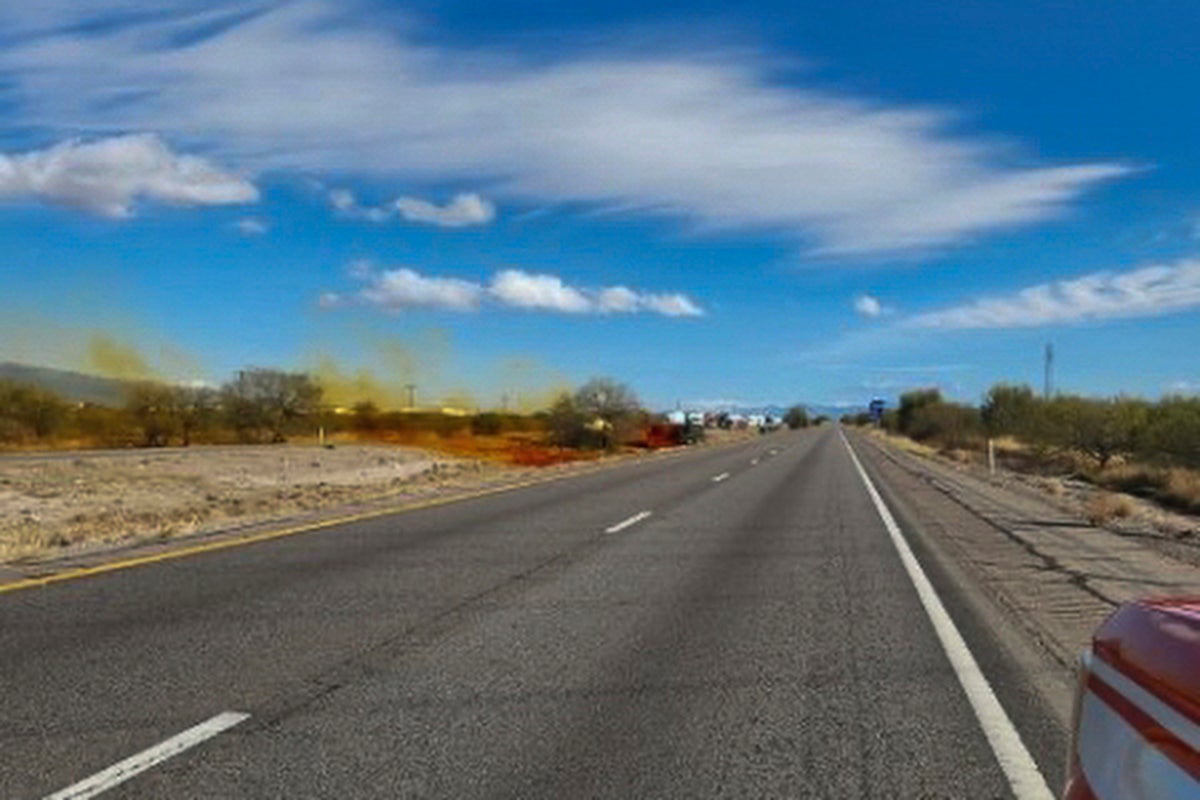
The deadly truck accident this week that caused a hazardous materials spill southeast of downtown Tucson this week did not appear to be caused by high speed, drugs or alcohol, Arizona Department of Public Safety officials said Thursday.
The authorities said at a news conference that truck driver Ricky Immel, 54, was traveling from his home state of Nevada to Alabama with a load of packages of liquid nitric acid Tuesday afternoon when his vehicle left the roadway and flipped onto the left side, then into the median. Immel was later declared dead at the scene.
The cause of the accident and Immel's death are under investigation.
Immel was traveling with his service dog, which will be reunited with his wife, said officials, who did not say what type of assistance the animal was trained for.
The main freeway in southern Arizona reopened in both directions Wednesday evening, and officials said people living in the area could safely return to their homes or go outside a day after the crash sent acrid red and yellow plumes into the desert sky and evacuation and shelter-in-place orders were issued.
Less than 2 miles (3.2 kilometers) of Interstate 10 had been closed in both directions for over 24 hours after the truck tractor pulling a box trailer crashed, spilling about 40,000 pounds (18,200 kilograms) of packages of nitric acid onto the asphalt roadway that runs through dry land scattered with scrub brush.
The Arizona crash came as Ohio residents continue raising concerns about the release of toxic chemicals on board a freight train that derailed Feb. 3 and left 50 cars in a fiery, mangled mess. There were no injuries, and officials later ordered the evacuation of the immediate area. Residents in that state worried about the potential health impacts from the wreckage.
In Arizona, Pima County’s health department and poison control center recommended that anyone who may have been in contact with the nitric acid for more than 15 minutes get a medical evaluation if they develop respiratory difficulties. They said symptoms could be delayed up to 24 hours after exposure.
Health officials said people who simply drove through or past the accident and chemical plume should not have been affected.
Nitric acid is a highly corrosive colorless liquid used to make ammonium nitrate for fertilizers and the manufacture of plastics and dyes.
The Centers for Disease Control and Prevention’s website says exposure to nitric acid can irritate the eyes, skin and mucous membranes. Depending on how long someone is exposed to the material, and how much, it also can cause delayed pulmonary edema, pneumonitis, bronchitis and dental erosion.







